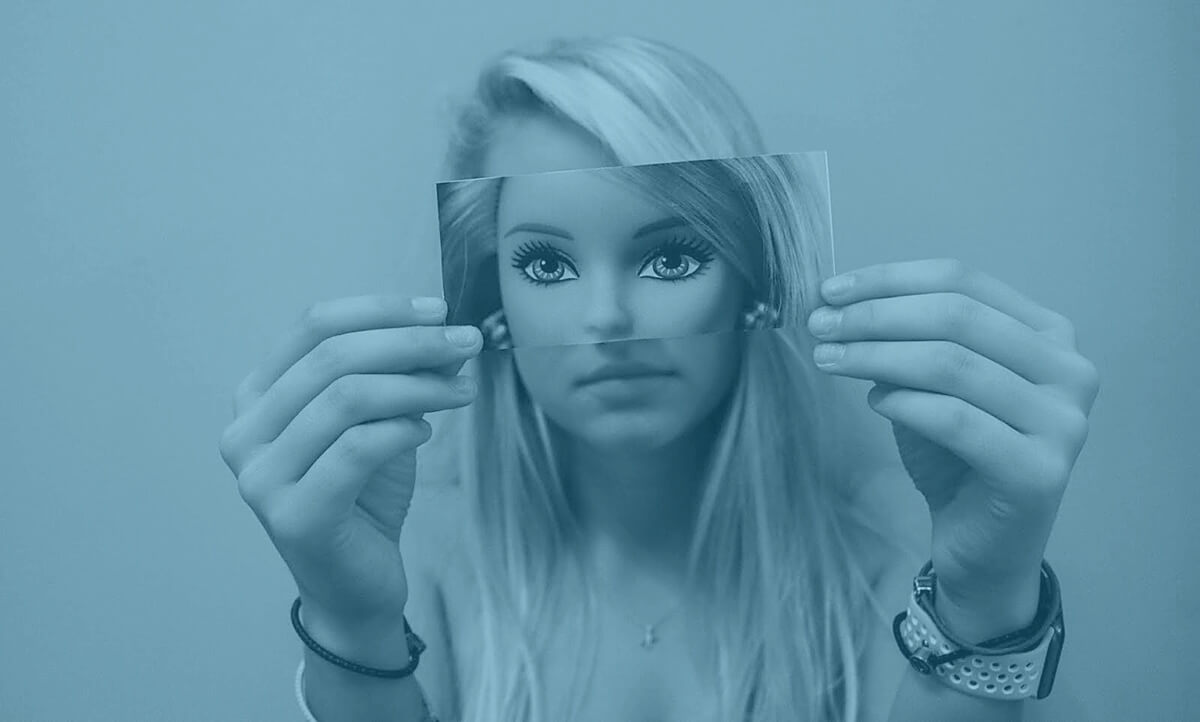Misleading beauty
Do you like what you see when you look in the mirror? Many people will answer “no” to this question. And if on the one hand there is no problem in wanting to achieve a “better version” of ourselves, many times this desire is – even if unconsciously – imposed by the opinions of those around us: some closer, others not so close. There are countless sources from which we can draw inspiration to achieve what we are told is the perfect body: in the new protagonist of a movie that is about to premiere, in the magazine that highlights the “bikini body” of a well-known actress, in the perfect pictures of the influencer who went on vacation and decided to pose for the camera and show how fit she is. And what do we take away from all this? That a good appearance is synonymous with happiness and success.
Clarinda Brandão, Registered Psychotherapist & Relationship Expert, is also Founder and Managing Partner of Psychotherapy In the City, which offers various services such as individual therapy, couple therapy, parenting, child & youth therapy and other approaches and methods to help clients become the best version of themselves. It was with her that our newspaper talked to try to understand, after all, the real power of social networks and advertising and marketing campaigns in this constant search for perfection, how society – especially women – is pressured to be, many times, the opposite of what it really is and what are the physical and mental consequences that result from this standardization of beauty.
 Milénio Stadium: What makes someone want to have the perfect appearance or body?
Milénio Stadium: What makes someone want to have the perfect appearance or body?
Clarinda Brandão: Society tells us that a “perfect” appearance or body equals success. We live in a world where beauty standards can play a big role on achieving happiness.Most attractive people enjoy many unearned benefits, such as being treated better by teachers and employers. In some cultures, beauty might mean simply looking healthy and well. But in today’s increasingly materialistic and image-focused society, beauty standards are often unrealistic.
There are pressures from so many places like advertising on TV and in magazines to billboards, social media, computer games, and online videos that create an illusion of what we are “supposed” to look like. We also can have pressures and even expectations from family and friends.
Beauty standards are the set of cultural norms that dictate what is considered aesthetically pleasing. For example, the idealized female body shape seen in fashion magazines is typically only achievable through photoshopping or other digital alterations. Also, the “perfect” skin tone or hair texture is often achieved with the help of cosmetics or hair products.
Men, too, are often expected to have muscular features and bodies that would require hours of dedication at gym to achieve. In addition, people of all genders are often judged harshly for any physical imperfections, regardless of how minor they may be.
MS: How can social media and advertising/marketing campaigns influence the way people look at their bodies?
CB: One of the main sources and most obvious, is the portrayal of women in the media.
Women and young girls struggle to tell if images have been doctored or photoshopped, so they assume that the women in the media are real, and that the way they’re portrayed is obtainable and realistic.
This creates an unrealistic pressure for girls and young women to conform to the images they see around them and try and replicate that “perfect body” or “perfect image” that in fact does not even exist.
Another source is the language and words we use around girls and young women, which focuses on their physical attributes rather than their achievements.
MS: And what will be the extent of this impact? In other words, what are the consequences that can result from a certain standardization of beauty and the search for perfection?
CB: There is a significant consequence with today’s pressures on beauty standards. Negative body image can lead to several mental health problems, such as eating disorders, depression, and anxiety. It can also lead to social isolation and low self-esteem.
Additionally, the pressure to meet certain standards of beauty can result in body dysmorphic disorder (BDD), a condition in which a person becomes preoccupied with perceived flaws in their appearance.
Low self-esteem can have many negative effects on a person’s life and relationship. People with low self-esteem feel unworthy and often seek out relationships that reinforce this feeling. They also lack the confidence to try new things, which can cause major blockages in their careers and professional life.
The psychological effects of beauty standards behind closed doors are a sad one.
MS: We usually associate these questions with a universally and exclusively female “problem”… but is this really the case?
CB: Women feel more pressure in having to follow these unrealistic beauty standards, though men also deal with the pressures. It is still very much a pressure on young girls and women.
MS: About two years ago Norway passed a law that requires digital influencers in the country to communicate what retouching has been done on photos posted on social networks, and those who fail to do so will be fined. In your opinion, is this an effective solution?
CB: I believe the Norway law on removing editing of photos can have a positive effect on young and older generations. It allows people to see a realistic beauty standard and create a more realistic world of acceptance. Which can have a positive result on mental health.
MS: When does the pursuit of perfection become a problem and therefore needs treatment?
CB: It is already a problem as we see many young people seeking social media as an example of what they “should” look like.
It’s important to remember that everyone is different and there’s no one “perfect” body type. We should all strive to have a positive body image and learn to love our bodies the way they are.
It’s also important to pay attention to how you see yourself and your body and make positive changes. Some changes you can make to help boost your self-esteem:
Unfollow people on social media who use Photoshop or heavily edit their photos.
Practice self-acceptance and compassion.
Do a social media detox. Remove accounts that don’t make you feel good.
Expose yourself to positive messages.
Seek help. Finding a therapist to help you process your feelings and heal.
Inês Barbosa/MS









Redes Sociais - Comentários